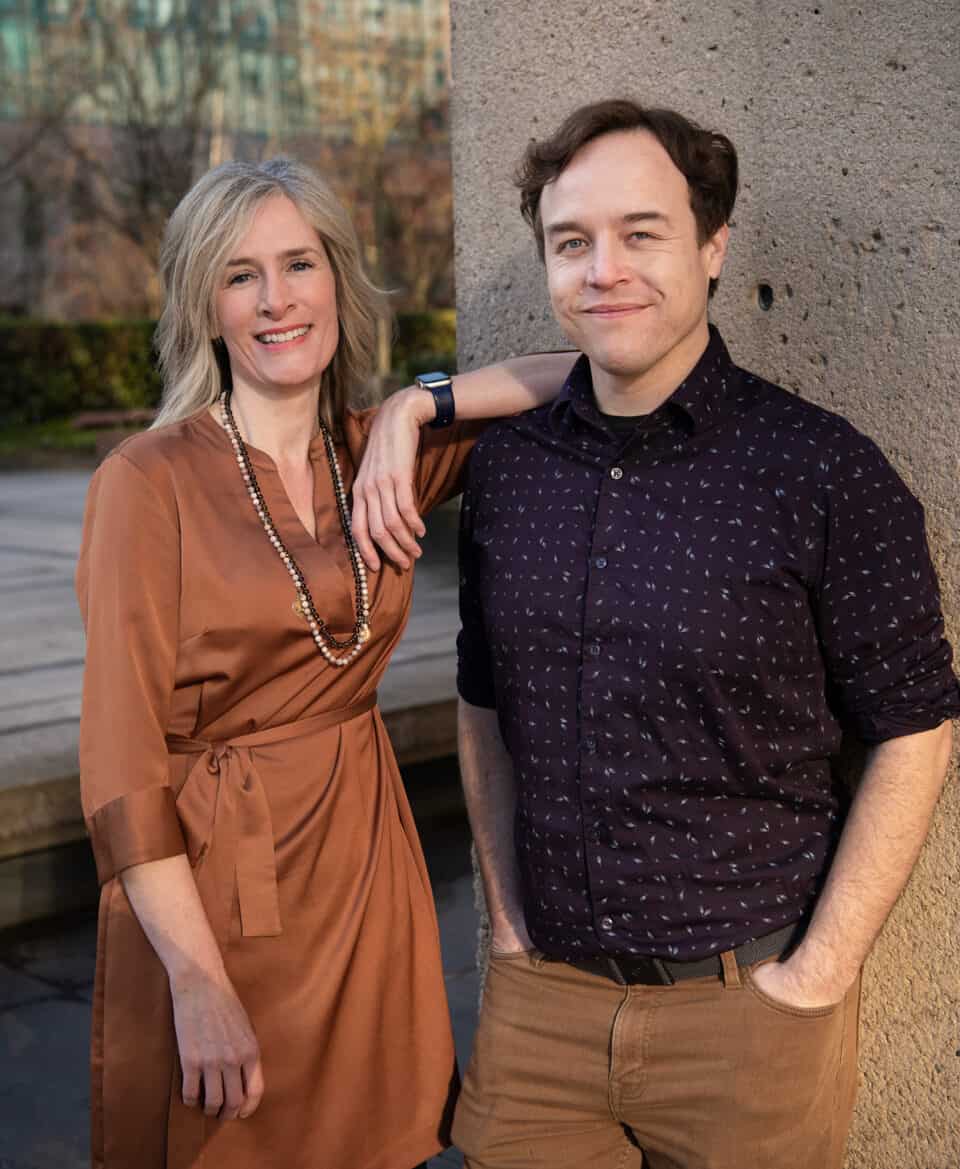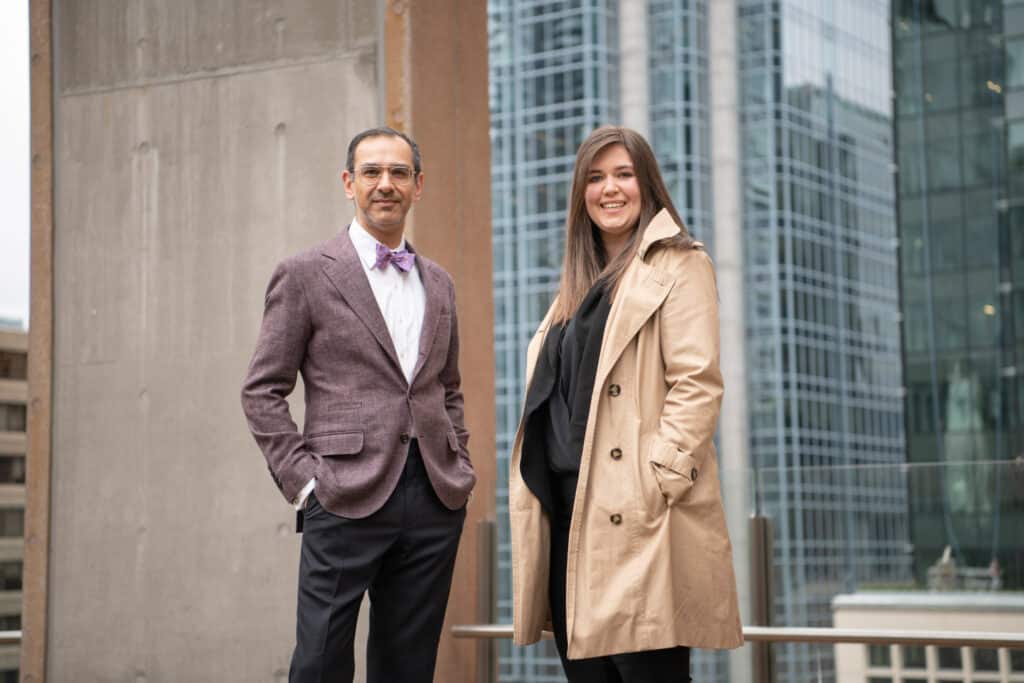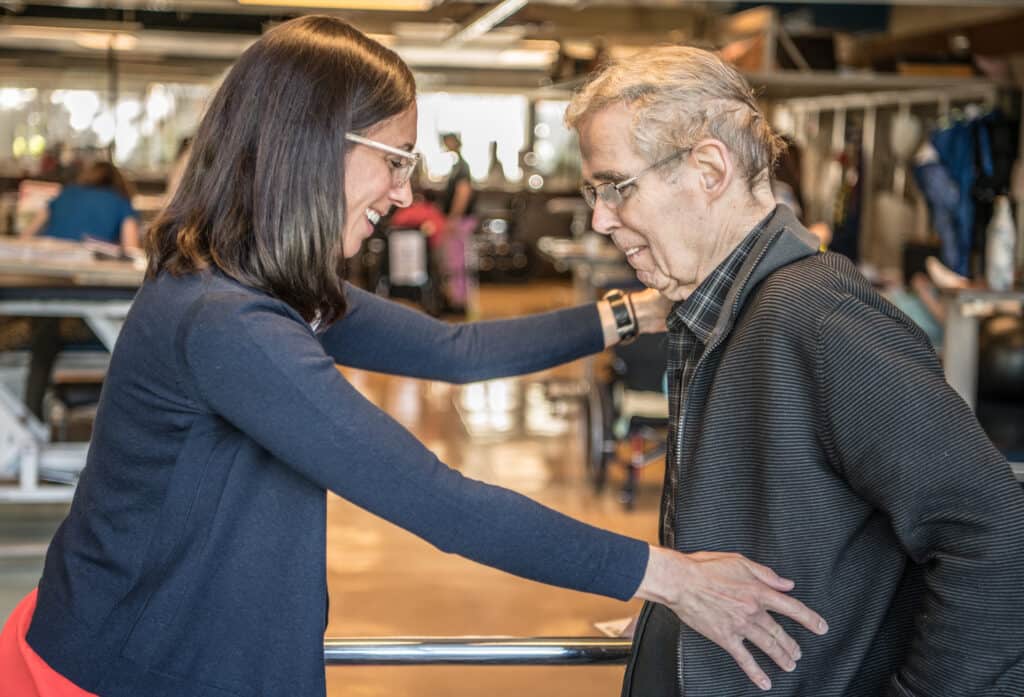Published Promise 2022
To graduate from medical school, you are required to have instruction across a wide range of care areas, but incredibly, you can graduate without any formal training to recognize and treat addiction. And yet, most physicians, regardless of their specialty, are likely to encounter patients dealing with the problematic use of alcohol, tobacco, marijuana, opioids, or stimulants. Thousands of people have paid with their lives for this knowledge gap.
In part because of its location near the epicentre of the toxic drug crisis, and in part because of its longstanding commitment to compassion and social justice, St. Paul’s Hospital and Providence Health Care (Providence) are leaders in preventing, treating, and supporting the people at its centre. In 2016, Providence launched the BC Centre for Substance Use (BCCSU).
From the beginning, the BCCSU has pursued a mandate to develop evidence-based approaches to address the all-too-common negative outcomes of untreated addiction. One of its first initiatives was launching a fellowship program to define the way addiction medicine is taught. It has since become the largest inter-disciplinary addiction medicine fellowship in North America.
A unique and compassionate first in Western Canada
Today, the BCCSU’s addiction fellowship program trains physicians, nurses, nurse practitioners, social workers, pharmacists, and researchers to recognize, treat, and support patients with substance use disorders.
What makes it so unique? Just about everything.
Tim Gauthier is the director of the BCCSU’s Addiction Nurse Practitioner Fellowship Program and is himself a past fellow. “We are more than five years into the public health emergency,” explains Gauthier. “Our fellows are out there on the front lines. And we’re giving them what they need to respond to this emergency with the urgency it deserves.”
Fellows are trained in detox, in-patient addiction care, residential treatment, complex pain, and the physical and mental health issues that can accompany substance use and the impacts of prohibition. In addition, they work closely with health care practitioners from other specialties to manage concurrent disorders.
Gauthier points out that one of the most resonant parts of the program is learning from world-renowned experts, including people with lived experience. “People with lived experience are the experts when it comes to the impacts of the war on drugs, and how it plays out in the health care system and beyond.
By centering the voices of people who use drugs in our conversations, we have the opportunity to gain valuable insights into the human experience of substance use, and how we can best support people across the entire spectrum of substance use.” says Gauthier.
Fellows graduate with a combination of solid academics, hands-on experience with advanced assessment methods, and a proficiency with an array of new and emerging treatment strategies. It’s a lot to pack into a 12-month program.
It’s never just about the drugs
Tracey Day is a nurse practitioner (NP) in Prince George and the current holder of the Addiction Nurse Practitioner Fellowship. In her role, she sees the devastating impact of addiction on Indigenous Peoples in northern BC. (In BC, the mortality rate amongst Indigenous people who use drugs is five times higher than for other drug users.) The root cause of these disparities is colonialism and racism, and associated trauma and pain. “Systemic racism in health care is one of the reasons I applied for the fellowship,” says Day.
While research has significantly advanced our understanding of the neurobiology of addiction, some people continue to see it as a moral failing or lack of self control.
“Nowhere are these negative stereotypes more persistent than within the Indigenous community,” says Day. “All too often, addiction is a symptom of complex intergenerational trauma or colonization trauma.”
Day is licensed to diagnose, order, and interpret diagnostic tests and to prescribe medication and other treatments. Importantly, she also provides much needed compassionate care to her patients. “Rural practice is often overlooked and doesn’t get the attention it deserves,” explains Day. “I’m grateful that this fellowship will allow me to better serve patients in our remote northern communities, especially patients who have experienced stigma from the health care system.”
Training so critical, fellows are paying out of their own pockets
Unfortunately, in spite of its innovative approach and overwhelmingly positive impact, the fellowship program is seriously hampered by a lack of funding. For Gauthier, it’s impossible to overstate the urgent need for donors to support the BCCSU Fellowship Program. “Each fellowship can cost upwards of $100,000,” he says. “Unfortunately we’ve had to defer several really qualified candidates because we weren’t able to secure adequate funding.”
Even worse, some NPs have had to forgo months of salary to participate in the program. Others, like Day, have tried to source their own funding, sometimes even paying out of their own pockets. “That’s not a sustainable solution. And it’s not even possible for most NPs,” says Gauthier.
Asked what she would say to a potential donor, Day is candid. “By funding this crucial work, you’re supporting people like me with their boots on the ground,” she says. “I’m learning so much. I know I’m going to make a real difference for my patients and my community.”
Addiction doesn’t discriminate. When you support the invaluable work happening at the BCCSU, you equip these frontline workers with the skills, experience, and humanity to help someone you might know. Give today at donate.helpstpauls.com/BCCSU.
Photography by Jeff Topham



